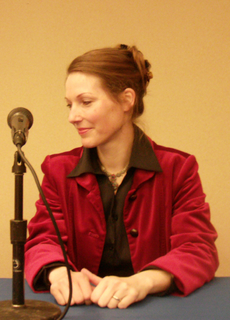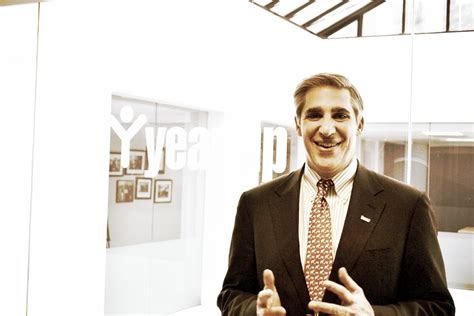A Quote by Oliver D. Crisp
In many ways the book [Saving Calvinism] is trying to argue for a more popular audience things I've said in some more scholarly works, namely, that the Reformed tradition is broader and more variegated than is often reported today, and that we need to recapture something of this in order that we don't end up unnecessarily narrow in our doctrine and in order to keep some perspective.
Related Quotes
The book [Saving Calvinism] argues in each case that the Reformed tradition is broader and deeper than we might think at first glance - not that there are people on the margins of the tradition saying crazy things we should pay attention to, but rather that there are resources within the "mainstream" so to speak, which give us reason to think that the tradition is nowhere near as doctrinally narrow as the so-called "Five Points of Calvinism" might lead one to believe.
. . . Our Lord humbles in order to raise up, and allows the suffering of interior and exterior afflictions in order to bring about peace. He often desires some things more than we do, but wants us to merit the grace of accomplishing them by several practices of virtue and to beg for this with many prayers.
Many Christians in the evangelical tradition use words like "conversion," "regeneration," "justification," "born-again," etc. all as more or less synonyms to mean "becoming a Christian from cold." In the classic Reformed tradition, the word "justification" is much more fine-tuned than that and has to do with a verdict which is pronounced, rather than with something happening to you in terms of actually being born again. So that I'm actually much closer to some classic Reformed writing on this than some people perhaps realize.
It is often reported that the Five Points of Calvinism are the conceptual hard-core of Reformed thought. That is very misleading. The Five Points supposedly originate with the Synod of Dort in the early seventeenth century. Yet we find important Reformed leaders who were signatories to that documentation who don't think that limited atonement is the right way to think about the scope of Christ's saving work. How can this be? The answer that recent historical theology has thrown up is that the canons of the Synod don't require adherence to the doctrine of limited atonement.
Beingness, doingness and havingness are like a triangle where each side supports the others. They are not in conflict with each other. They all exist simultaneously. Often people attempt to live their lives backwards: They try to have more things, or more money, in order to do more of what they want, so that they will be happier. The way it actually works is the reverse. You must first be who you really are, then do what you need to do, in order to have what you want.
The expansion I have in mind isn't the same as distortion. Of course, there are those who say their views represent Reformed thought, but what they end up with is a caricature of what Reformed thinking is really about. I hope I am not one of those people, but readers [of the Saving Calvinism] will have to make up their own minds on that score!
But that is the way of the place: down our many twisting corridors, one encounters story after story, some heroic, some villainous, some true, some false, some funny, some tragic, and all of them combining to form the mystical, undefinable entity we call the school. Not exactly the building, not exactly the faculty or the students or the alumni - more than all those things but also less, a paradox, an order, a mystery, a monster, an utter joy.
Sometimes we can lose the wood for the trees. Some specific issues dealt with in the book [Saving Calvinism]: the scope of election (who is saved?); the nature of the atonement (do we have to hold to penal substitution if we're Reformed?); the scope of the atonement (for whom did Christ die?); whether we have to hold to some sort of theological determinism (God ordains all that comes to pass).
The saying in business is that, 'You hire for skills and you fire for behavior.' And one would argue that in order to move up in career, to be promoted, to take on additional responsibility, in many ways that's linked more to the attitudes and behaviors that you carry rather than what you know technically about a given subject.
For instance, there are many mainstream Reformed theologians that deny the doctrine of "limited" atonement (the "L" in TULIP, the acrostic for the Five Points of Calvinism). These are not thinkers on the margins or troublemakers. They are leaders at the center of Reformed thinking like Bishop John Davenant.



























